Publications
“The economic crisis reminds us that it is essential for people to be healthy, educated, adequately housed and well fed to be more productive and better able to contribute to society,” said Jomo Kwame Sundaram, DESA’s Assistant Secretary-General for Economic Development. “Social policy should be an integral part of economic policy.”
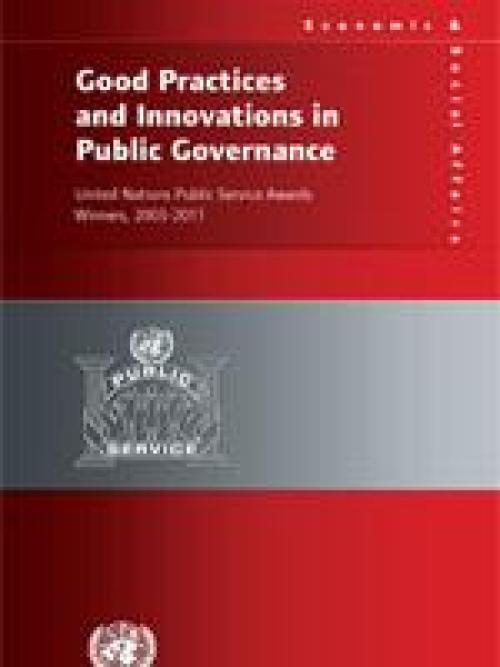
This publication provides an overview of 145 successful innovations in governance and public administration from 50 countries that received the United Nations Public Service Awards, which is the most prestigious international recognition of excellence in public service.
The purpose of the series is to disseminate, through descriptive case studies, information about innovative practices by:
(i) looking at the problem that led to an innovation;
(ii) the solution that was designed and implemented to respond to the specific challenge;
(iii) the actors and steps involved in the innovation process, and
(iv) lessons learned. Learning more about how public…
The perceptions of the role of women and men in families have changed over the past few decades. Men are no longer perceived as the economic providers to families. The role of men in the family has undergone many “diverse demographic, socio-economic and cultural transformations” impacting the formation, stability and overall well-being of families. In light of this development, DESA’s Division for Social Policy and Development (DSPD) launched a new publication on “Men in Families and Family Policy in a Changing World” on 17 February focusing on the shifting roles and views of men in families.
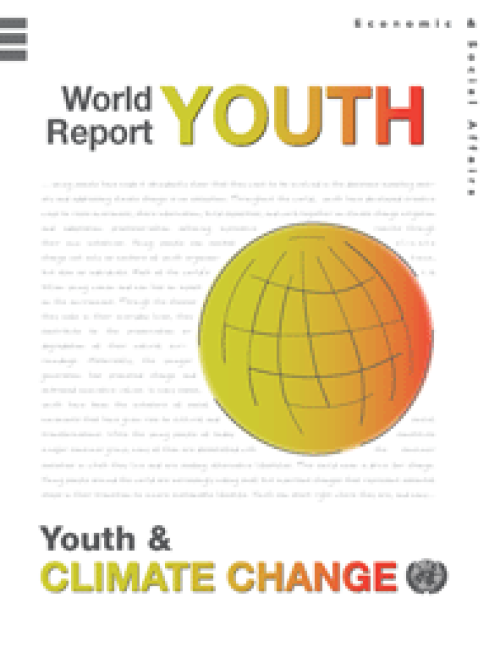
The World Youth Report focus on youth and climate change, and is intended to highlight the important role young people play in addressing climate change, and to offer suggestions on how young people might be more effectively integrated as individuals and collective agents of change within the realm of climate change adaptation and mitigation. The Report is designated to assist youth and youth organizations in educating themselves and to become more actively involved in combating the threat of climate change. It is also meant to affirm the status of young people as key stakeholders in the fight against climate change. The publication comes at a time when efforts to address climate change…
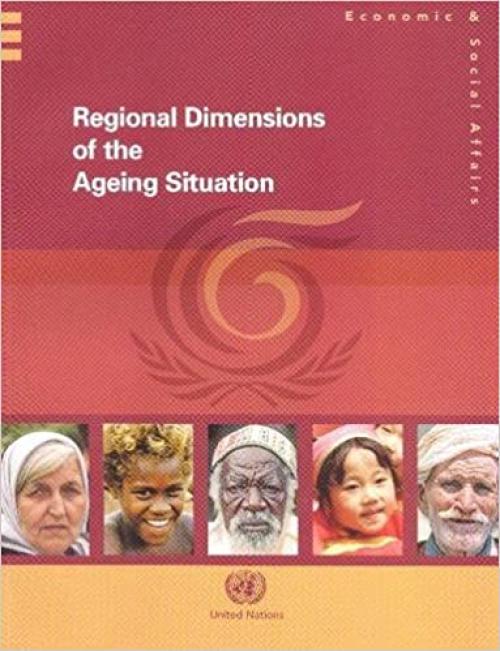
This Publication contributes to the series of events, conferences and publications related to the first review and appraisal of the Madrid International Plan of Action on Ageing. It highlights priorities, as well as recent trends and policy developments, in the five UN regions of the world.
The publication, which is a joint effort of UN staff and international experts, aims to assist national governments, the international community and the public at large to better assess the situation of older persons five years after the Second World Assembly on Ageing. It should better inform the debate on how to align priorities, policy innovations and technical cooperation to implement the…
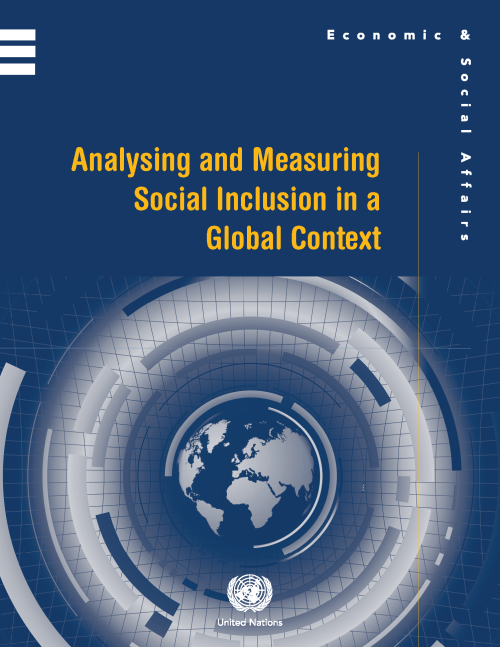
The objective of the study is to serve as a guiding framework for policymakers, researchers and practitioners interested in developing practical tools for evidence-based policymaking, impact assessment, monitoring and evaluation in the area of social inclusion. It provides guidance on how to develop tools, taking into consideration the historical, cultural and contextual backgrounds of one’s own society.
The study also builds on the work on social indicators that has already been undertaken by many people at local, national, regional and international levels. It is hoped that the study will help to inspire new ideas and to generate innovative…
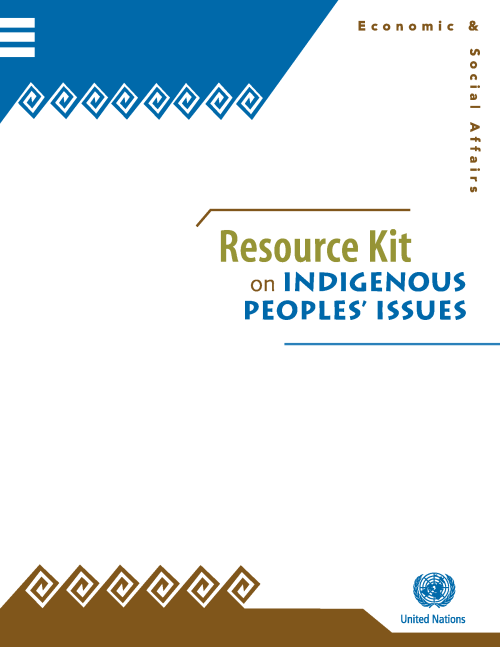
SPFII, in cooperation with ILO, UNICEF, UNDP, UNFPA and SCBD has published the Resource Kit on Indigenous Peoples Issues. The Kit is aimed UN Country Teams (UNCTs), and other development agents, providing them with guidance as to how to engage indigenous peoples and include their perspectives in development processes.
The World e-Parliament Report 2010 examines how global and regional inter-parliamentary cooperation can exploit synergies among nations to help parliaments in developing countries bridge the digital divide by overcoming the barriers of limited resources and technical constraints. It proposes to the parliamentary and donor communities a shared framework for e-parliament based on strategic goals that serve democracy, good governance, and the attainment of the internationally agreed development goals.
The 2010 United Nations e-Government Survey: Leveraging e-government at a time of financial and economic crisis was completed in December 2009 and launched in early 2010. The report presented various roles for e-government in addressing the ongoing world financial and economic crisis. The public trust that is gained through transparency can be further enhanced through the free sharing of government data based on open standards.
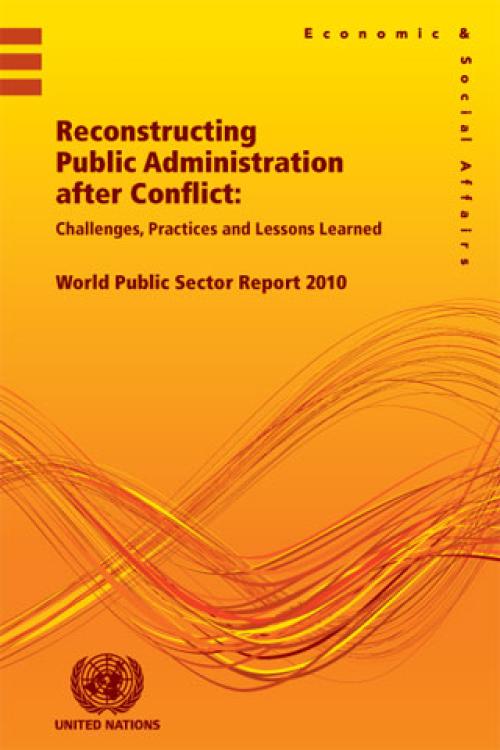
Reconstructing Public Administration after Conflict
The 2010 World Public Sector Report brings to the fore a very critical issue - how to reconstruct public administration in post-conflict situations so as to enable it to promote peace and development in countries that have been affected by civil war and destruction. It is a question that has remained unresolved for decades and has brought poverty, despair, and death to people in many corners of the world. The Report shows that no progress can be made in promoting peace, development and protection of human rights unless appropriate governance and public administration institutions are established, leadership and human resources…
The world needs to reassess the notion of poverty and the means for its eradication, according to a new report published by DESA’s Division for Social Policy and Development. The Report on the World Social Situation 2010 entitled “Rethinking Poverty” was critical of the current way that the international community identified and addressed poverty. The Report argued that “although the current monetary poverty-line approach...
There are over 370 million indigenous people in some 90 countries, living in all regions of the world. The situation of indigenous peoples in many parts of the world is critical today. Poverty rates are significantly higher among indigenous peoples compared to other groups. While they constitute 5 per cent of the world's population, they are 15 per cent of the world's poor. Most indicators of well-being show that indigenous peoples suffer disproportinately.
 Welcome to the United Nations
Welcome to the United Nations